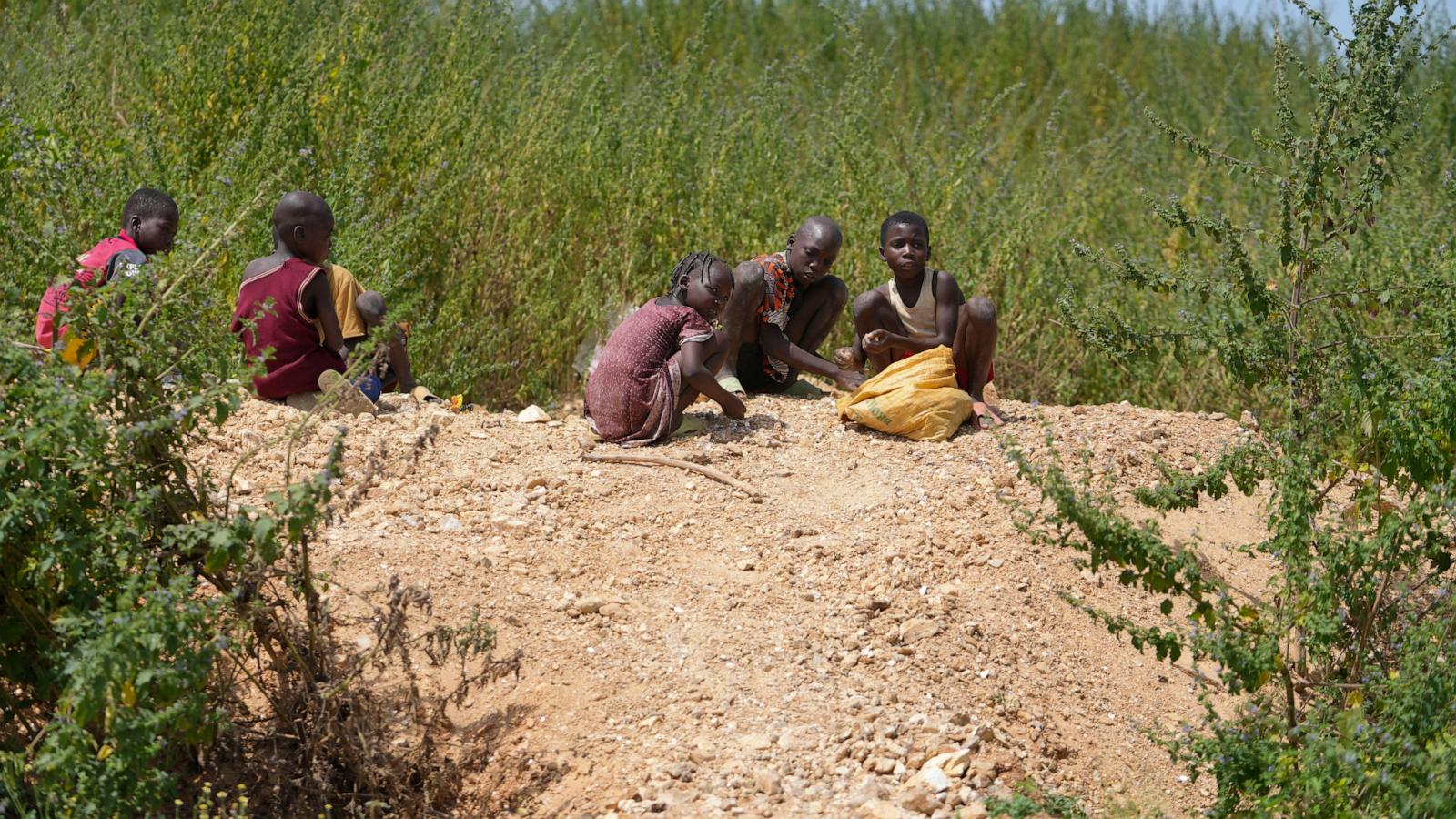The Shocking Truth About Child Labor in Nigeria's Lithium Mines
The electric vehicle revolution is booming, and with it, the demand for lithium, a key component in EV batteries. But behind the sleek designs and promises of a greener future lies a dark secret: the exploitation of children in Nigeria's illegal lithium mines. This isn't just a statistic; it's a heartbreaking reality for thousands of children who toil in dangerous conditions, risking their health and lives for meager pay.
A Boom Built on Broken Dreams: The Lithium Rush in Nasarawa
The Pasali region of Nasarawa state, once a quiet, remote community, has been transformed by the lithium rush. Dozens of unlicensed mines have sprung up, each a testament to the greed that fuels this deadly industry. These aren't sophisticated operations; they're crude, dangerous pits where children work alongside adults, wielding hammers and chisels in conditions that would horrify anyone with a conscience. Imagine a child, barely old enough to hold a tool, descending into the dark depths of a mine, risking suffocation, collapse, or premature dynamite explosions – this is the harsh reality for many.
The Perilous Lives of Child Miners
The children working in these mines are often orphans or come from impoverished families who see mining as their only way to survive. They face appalling conditions, working long hours for minimal wages. The toxic dust alone poses significant health risks, causing respiratory issues and asthma, impacting their future prospects dramatically. The dangers go beyond just respiratory problems. A single mistake in the mines can have fatal consequences - these children risk death each time they descend.
The Brutal Economics of Child Exploitation
A group of six children can sort and bag up to ten 25-kilogram bags of lithium-rich rock a day, earning just $2.42. This paltry sum is shared among them, barely enough for sustenance, highlighting the stark realities of poverty that compels parents and their children into this life. While many of them are pulled out of school due to their parents believing it to be financially impractical to allow them to study, such actions are only causing them more harm in the long run. Their futures are being stolen from them – years and decades which could have been filled with hope and prosperity instead replaced with fear and danger.
The Unseen Hands: From Mine to Market
The illegal lithium trade operates through informal networks, shielded from accountability by bribery and corruption. Local merchants openly acknowledge using child labor but rationalize it as a means of survival for these children. However, this isn't simply a case of localized exploitation; large corporations are indirectly complicit. The AP investigation showed how the lithium ore mined under appalling conditions by children was ultimately sold to Chinese companies with alarming ease. This proves how a lack of stringent monitoring and regulations at every point of the lithium supply chain enables this illicit trade.
The Global Demand and Corporate Responsibility
Global demand for lithium is projected to increase significantly in the coming years, further incentivizing the unchecked exploitation of children in Nigeria. But where is the social responsibility? Shouldn’t the responsibility lie upon larger entities such as the Chinese companies to implement responsible procurement guidelines that prohibit sourcing materials mined under egregious conditions involving child labour? Are these entities prepared to examine where and how their goods are made, and what price is being paid by humanity for the benefits that they bring?
A Call for Action: Combating Child Labor in the Lithium Industry
Combating this issue requires a multi-pronged approach involving government regulations, corporate accountability, and international pressure. The Nigerian government claims that the situation is under control with reformations that will minimize and combat this issue. However, the reality indicates a desperate need for stricter laws, improved enforcement, and dedicated initiatives that effectively dismantle the networks facilitating this illicit activity. Simultaneously, consumers, governments, and corporations must demand ethical sourcing and transparency in supply chains, holding both national and multinational entities accountable. These factors need to work cohesively and in sync in order for these measures to truly have a positive impact on ending child labor and abuse within the lithium industry.
The Road Ahead
The path forward requires significant and sustained efforts. There is hope for these vulnerable communities. A combined effort between international humanitarian bodies and corporations along with improved infrastructure, better educational provisions and an improved regulatory environment can begin to break down the cycle of poverty and abuse which prevents many children from escaping the life of child miners in Nigeria’s lithium mines.
Take Away Points:
- The demand for lithium fuels the exploitation of children in Nigeria’s illegal mines.
- Children face dangerous working conditions and health risks.
- The informal networks involved facilitate the illegal trade with little accountability.
- Governments and corporations need to step up enforcement, reform regulations, and increase transparency to combat this modern slavery.




